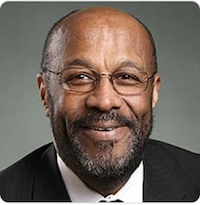In the Fall of 1966 during my Freshman year in college, I got my first introduction to the Israel/Palestine conflict that is on full display in the 24-hour news cycle today. I met a student named Marie Abu Abara from Palestine. She was not from Jordan, or Lebanon, or Egypt, or Israel. She was from Palestine.
During a one-hour bus trip during Freshmen orientation week she recited seven generations of her family that had been born in Palestine. She talked about the 700,000 Palestinians who were forcibly uprooted as a result of the United Nations Resolution 181 that divided what had formerly been an area controlled by the British into two separate regions; one Arab and one Jewish.
All Arabs living in Palestine had to relocate; most of them to tent cities and refugee camps in what had recently been their own homeland. It was not unlike what this country did to Native Americans who were forced off their ancestral homelands in order to make room for white settlers.
This decision to create the State of Israel was made in order to create a homeland for Jewish people just a few years after the end of the Holocaust. The world realized that between 1933 and 1945, over six million Jews and another five or six million people from other ethnic and political groups were systematically murdered by the Nazis in the largest act of genocide in human history. No other established country in the world including the United States wanted to open its arms to massive numbers of Jewish survivors of the Holocaust. A Jewish homeland seemed to be the only solution.
Of course, the hatred and murder of Jews was not unique to the Holocaust. Jews were the victims of what were called pogroms all over Europe and into Russia for hundreds of years. It seemed urgent after World War II to provide Jewish people with a homeland where they could live in peace behind secure borders. The problem was the simple fact that the land that was chosen for the new Jewish state of Israel was fully occupied by Palestinians who had been living on that land for thousands of years. That was the homeland of my college classmate Marie Abu Abara.
There is no doubt that Palestine was chosen as the site for the new Jewish state because Palestine was the site of the ancient nation of Israel for about one thousand years. However, as the Bible and history remind us, there were always other ethnic groups living alongside the Jewish/Hebrew people. In fact, for most of those years, the nation of Israel was a tiny part of the successive empires of Egypt, Assyria, Babylon, Persia, Greece, and Rome. It was during the reign of Roman Emperor Hadrian that most Jews were forcibly expelled from the region of Palestine known in the Bible as Judea where the city of Jerusalem is located. The people who remained after the Jews were forcibly exiled were the forebears of the people that today we call the Palestinians. That means that non-Jewish people have lived in Palestine just as long as the Jews themselves.
As horrific as the October 7, 2023 actions were by the Hamas terrorist group, you cannot understand that event without understanding this three thousand year old story. There is enough pain and blame to go around on both sides in this current crisis. However, there will be no resolution to the problem without knowing what I learned about sixty years ago from Marie Abu Abara. The history and struggles of the Palestinians are as legitimate as those of the State of Israel. The world needs to know this history if the region is ever to have a peaceful future.
R E C E N T:
The Hamas Attack
• • •• • •
The Rev. Dr. Marvin A. McMickle, pastor emeritus of Antioch Baptist Church in Cleveland, Ohio, is interim executive minister, Cleveland Baptist Association, American Baptist Churches, USA. He served as president of Colgate Rochester Crozer Divinity School, Rochester, New York, from 2011 to 2019.














